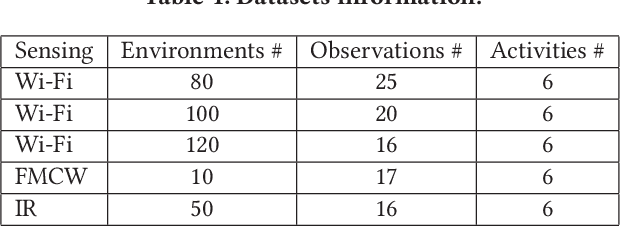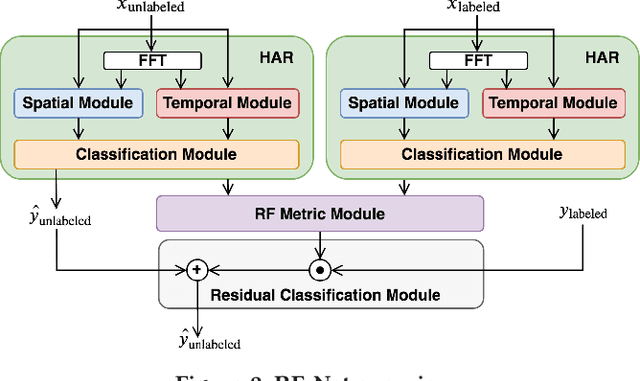RF-Net: a Unified Meta-learning Framework for RF-enabled One-shot Human Activity Recognition
Paper and Code
Oct 29, 2021



Radio-Frequency (RF) based device-free Human Activity Recognition (HAR) rises as a promising solution for many applications. However, device-free (or contactless) sensing is often more sensitive to environment changes than device-based (or wearable) sensing. Also, RF datasets strictly require on-line labeling during collection, starkly different from image and text data collections where human interpretations can be leveraged to perform off-line labeling. Therefore, existing solutions to RF-HAR entail a laborious data collection process for adapting to new environments. To this end, we propose RF-Net as a meta-learning based approach to one-shot RF-HAR; it reduces the labeling efforts for environment adaptation to the minimum level. In particular, we first examine three representative RF sensing techniques and two major meta-learning approaches. The results motivate us to innovate in two designs: i) a dual-path base HAR network, where both time and frequency domains are dedicated to learning powerful RF features including spatial and attention-based temporal ones, and ii) a metric-based meta-learning framework to enhance the fast adaption capability of the base network, including an RF-specific metric module along with a residual classification module. We conduct extensive experiments based on all three RF sensing techniques in multiple real-world indoor environments; all results strongly demonstrate the efficacy of RF-Net compared with state-of-the-art baselines.
 Add to Chrome
Add to Chrome Add to Firefox
Add to Firefox Add to Edge
Add to Edge